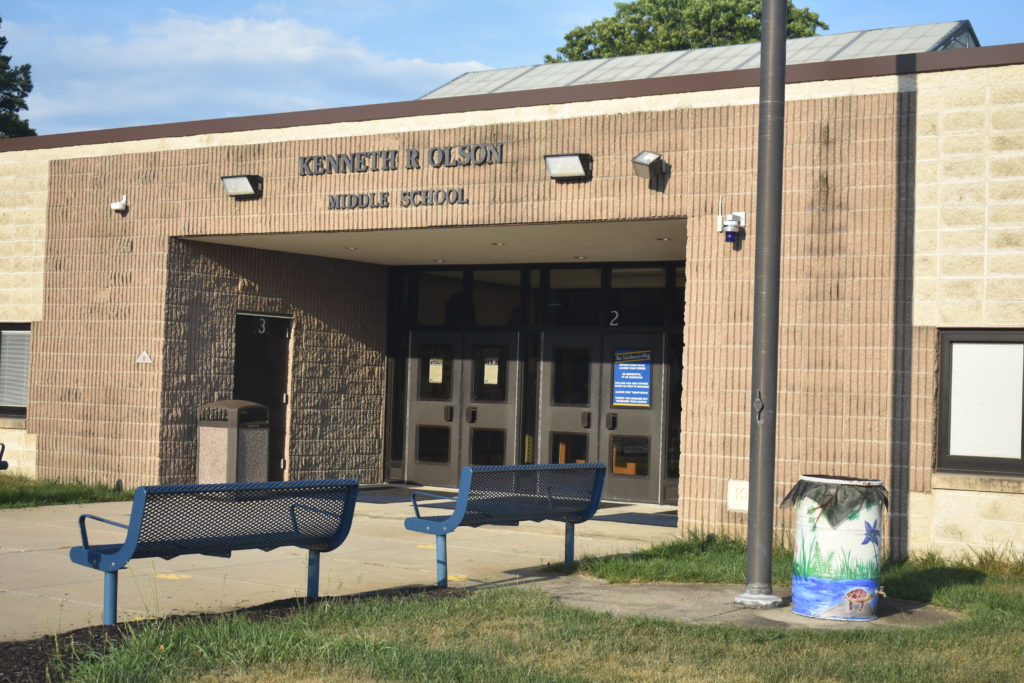

The Tabernacle school district’s board of education meeting on Sept. 19 featured discussions on a variety of topics, including a new contract for the Tabernacle Education Association.
Tensions were high at the Tabernacle board of education’s Sept. 19 meeting, the second portion of which centered on heated negotiations between the district and its teachers regarding a new contract.
Ahead of the final public comment segment, Board President Megan Chamberlain read a prepared statement informing the community that the board’s negotiation committee had been unable to come to an agreement with the Tabernacle Education Association following a July meeting. The association’s previous contract expired on June 30, leaving members at work without a new one.
In her statement, Chamberlain shared various requests from the union for a new contract, laying out what the district was said to have offered and the association’s response during private negotiations.
Chamberlain said that state aid cuts in recent years have left the district without an additional nearly $3 million in funding, while changes to mandated health care benefits reduced the contributions made by employees. That left the district responsible for an amount anticipated to be $160,000 this year, she added, a number projected to rise in future years, according to Chamberlain.
“You may ask, why is this relevant when we’re talking about contract negotiations?” Chamberlain said. “And the answer is that the staff and benefits costs are more than 70 percent of the budget, and most of the costs are dictated by what is negotiated by the board and the [Tabernacle Education Association] contract.
“Based on the initial proposal the board received from TEA,” she added, “the association asked for more than $2.2 million in additional dollars to be spent by the board.”
Chamberlain said that the board proposed “moderate” staff raises in the range of 2.3 to 2.5 percent for teachers and staff members, while the TEA requested a slightly higher percentage increase. Although during the meeting Chamberlain stated a figure that she attributed to the TEA’s request during her statement, The Sun cannot confirm what the association’s requested percentage increase is at this time.
At the end of her remarks, the board president said her statement was made in an effort to update community stakeholders on the negotiations.
“The board believes that negotiations should be conducted in private to facilitate collaboration, however, the association announced an impasse, and the parties have not made any headway,” Chamberlain said. “Consequently, the board believes that all stakeholders should be made aware of the current status.”
At the start of the meeting’s second public comment, TEA co-Presidents Heather Petersack and Brittany Murrow opted not to share or discuss specifics about negotiations held in recent months.
“We truly don’t feel that that would be the professional thing to do,” Murrow said. “You negotiate in private, until it becomes public, and we don’t feel like we’re there yet.”
But the two did share what they described as a common sentiment among the TEA’s 100 members that there is an ever-growing decline in trust between them and district administrators.
“The past few years have been tough on all of us, but even beyond the COVID reasons, our district has changed,” Petersack claimed. “The culture and climate is different. Morale is at an all-time low. Our staff feels defeated and broken, which was made abundantly clear in our climate survey.”
According to Petersack, results from that survey showed that 70 percent of staff members considered leaving Tabernacle schools in the past year, while 79 percent said they would not recommend that a family member or friend work in the district.
According to Murrow, staff members who stayed in the district in recent years have persevered in the name of teaching and providing Tabernacle children with the best education possible.
“As an association, we are asking that you see us, hear us and value us,” she said. “Work with us to settle our contract. We want to keep advocating for and supporting our students, but we also need to advocate for and support our own families, too.
“We understand that there have been state aid cuts over the years and we understand that the budget looks different,” Murrow added. “However, we have given up a lot over the years to help during those times …
“Other districts around us in very similar situations have found a way, and we can, too.”









